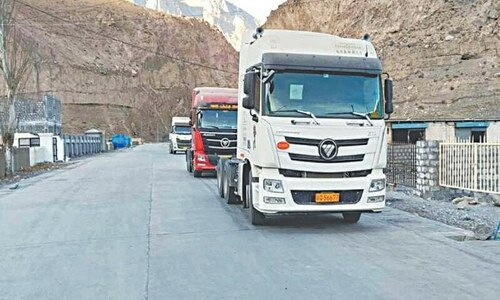IN the quest of true democracy, the journey often begins in the heart of the villages, where the pulse of the nation beats amidst the whispers of tradition and the echoes of influence. Recently, during a visit to my ancestral village, a conversation with a local woman shed light on the intricate web that entangles the essence of democratic principles in Pakistan.
Initially, the discussion revolved around the recent general elections, and, naturally, I inquired about her voting preferences. In fact, her choice was not based on any understanding of political ideologies or candidates’ qualifications. Instead, in her own words, her vote was cast in favour of a particular party solely because her spiritual guide, the murshid, was associated with it.
Digging deeper, it became apparent that the alignment between her vote and her murshid was not a matter of geographical or ideological relevance. It was a product of manipulation orchestrated by the local feudal lord, who wielded influence over the villagers’ political decisions. Despite the physical distance between her constituency and her murshid’s electoral domain, the villagers were led to believe that their vote would somehow reach him.
Unsurprisingly, this revelation struck at the very core of democratic principles — the right to make an informed choice based on individual convictions as well as societal welfare. However, reality painted a different picture. The woman’s confession that polling station staff had tampered with ballot papers further exposed the fragility of the electoral process.
In essence, what unfolded in that rural setting was not democracy, but a façade crafted by entrenched power dynamics and systemic manipulation. Besides, the feudal lord’s sway over the villagers’ political consciousness, coupled with electoral malpractices, highlighted the glaring gaps in Pakistan’s democratic framework.
To pave the way for true democracy in Pakistan, we must dismantle the feudal system that perpetuates such subversion of electoral integrity. Simultaneously, there is an urgent need to empower the masses with knowledge about their rights and responsibilities as citizens. Additionally, education, awareness and civic engagement are the cornerstones upon which genuine democratic values can flourish.
Until every citizen exercises their right to vote freely, without fear or coercion, the dream of true democracy in Pakistan will remain elusive.
However, it is now incumbent upon us, as advocates of democratic ideals, to challenge the status quo and strive for a system where every vote counts and every voice is heard. Only then can Pakistan truly claim to be a democratic dispensation.
Jahan Zaib Brohi
Sarhari
Published in Dawn, April 27th, 2024














































Dear visitor, the comments section is undergoing an overhaul and will return soon.